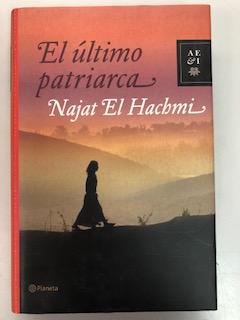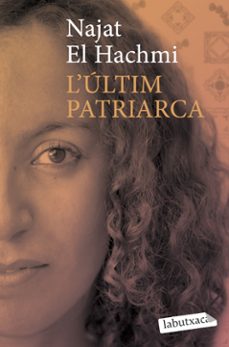

La obra de Najat El Hachmi está delineada por patrones de representación similares como la misma nacionalidad y origen étnico de sus protagonistas, las mismas inquietudes relacionadas con la herencia social y cultural, con la llegada y adaptación a la sociedad receptora, con la necesidad de romper con el orden impuesto por el patriarcado, con el conflicto de tener una identidad fronteriza, como también con la construcción de un sentimiento de doble pertenencia a dos mundos, es decir, a dos culturas todo ello se relaciona con el peso del legado que vincula a madres e hijas.

Ultimately, El Hachmi's personal odyssey throughout the intricacies of Catalan as a language of adoption allows the protagonist to find her own agency by developing a metalinguistic perspective that paves the way for her critique of both the fetishization of the written word as a site of colonial authority, and her father's patriarchal prescription of the grammar of her own life. In this sense, the use of the Catalan dictionary as a literary device allows El Hachmi to convey her gradual adoption of a transgressive approach to linguistic and sexual normativity. I will contend that such reading bears witness to a personal commitment to rescue literature qua practice of self-discovery to shed light on and recreate one's psychological, physical, and historical reality. In order to do so, I shall pay attention to the protagonist's critical reading of the Catalan dictionary as it runs parallel to her transition from childhood into adulthood. In particular, I will focus on the narrator's journey of linguistic migration, from her native language (Tamazight) to her language of adoption (Catalan). This essay deals with the way Najat El Hachmi's constructs her own authorial voice in L'Ultim Patriarca (2008) as a female Moroccan migrant living in Catalonia. This article offers an integrated analysis of these issues by reference to psychoanalysis. The novel roots this experience in modern referents through a dialogue with the Catalan literary tradition, and questions the idea of temporality understood as succession of generations by problematizing biological reproduction and gender subordination and through the shattering effects of anal sexuality. Here the circular temporality, based on the repetition of cycles, of Morocco's traditional society comes to a halt in the failure of the narrator's father to reproduce patriarchal domination in Catalonia. Najat El Hachmi's novel "L'últim patriarca" (2008) is an excellent example of these phenomena. The coexistence of asynchronous temporalities provoked by immigration is a factor in both cultural and psychic conflict.

Temporality, in fact, is a key axis in the formation of identities and in cultural conflicts, not just regarding the uses of the past and the projection of societies towards the future, but also in relation to the normative uses of the body. Yet migrations are not only a matter of space (of demographic movements and geographical relocations), but also of time: immigration questions the idea of origins and the possibility of a shared future, and problematizes the rhythms of everyday life. Recent Catalan criticism has focused on place and space, as well as immigration, but has overlooked temporality.


 0 kommentar(er)
0 kommentar(er)
